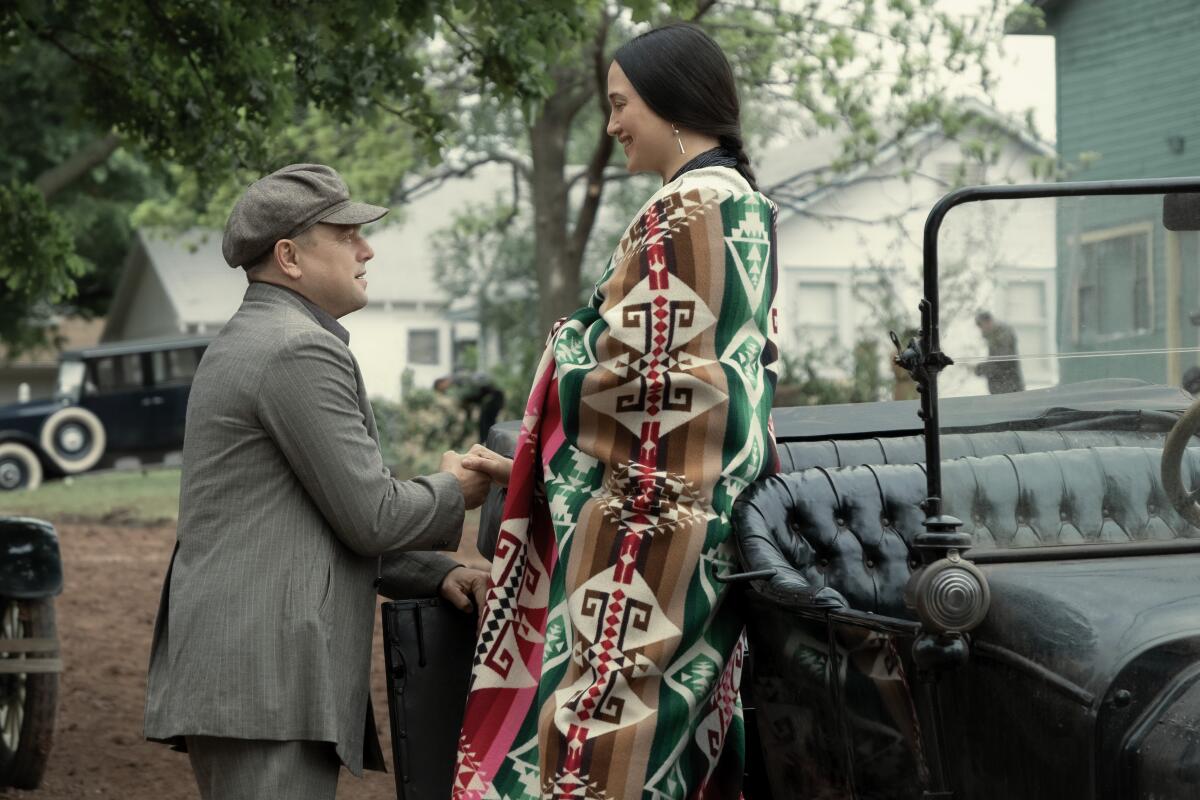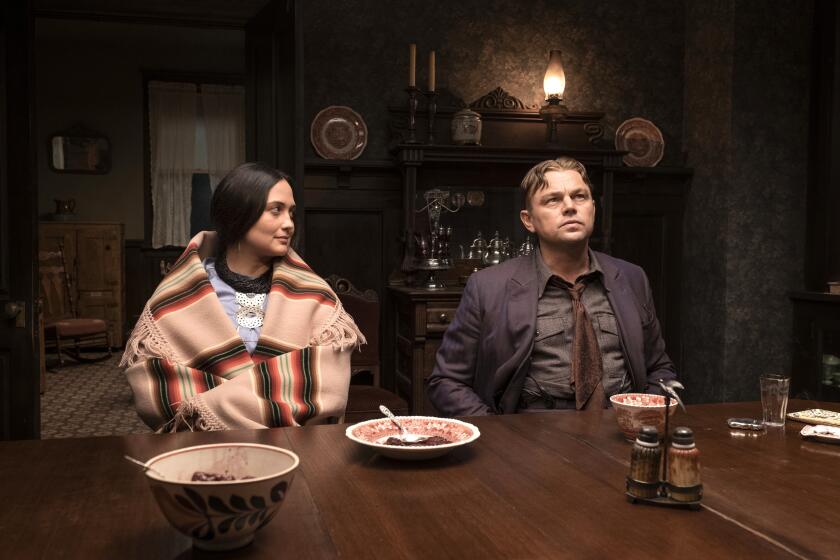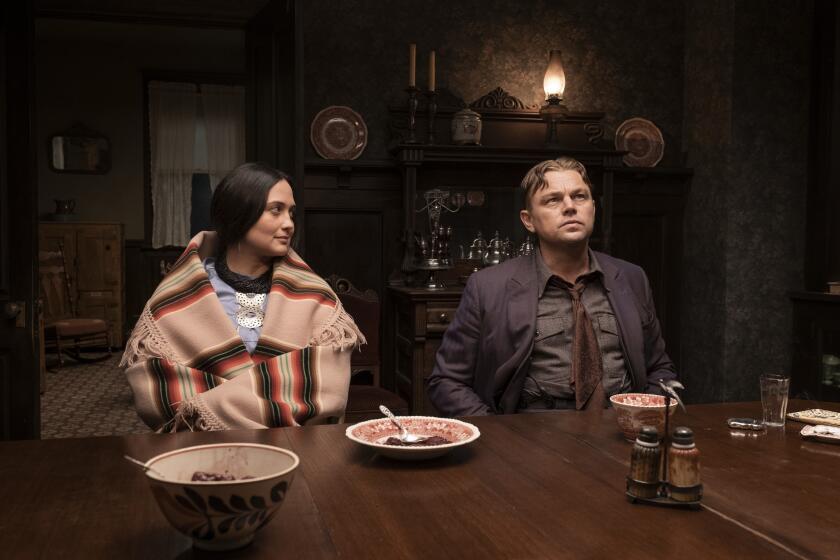Martin Scorsese rewrote ‘Killers of the Flower Moon’ to make sure it wasn’t just ‘about all the white guys’

Before shooting his latest film, “Killers of the Flower Moon,” Martin Scorsese said he decided to shake up which characters would get the spotlight. He said he realized the movie focused too much on white men.
After his revision, the historical drama, set in the Osage Nation, still centers on a white man, Ernest Burkhart, played by Leonardo DiCaprio. But the principal drama of the film became the marriage between Ernest and a Native American woman, Mollie Kyle (Lily Gladstone).
“After a certain point, I realized I was making a movie about all the white guys,” Scorsese told Time this week. “Meaning I was taking the approach from the outside in, which concerned me.”
‘Killers of the Flower Moon’ star Lily Gladstone says the Martin Scorsese film was significantly re-written to avoid telling a ‘white-savior story.’
“Killers of the Flower Moon” tells the true story of the murders of Osage Nation members by white settlers in the 1920s. DiCaprio originally was attached to play FBI investigator Tom White, who was sent to the Osage Nation within Oklahoma to probe the killings.
The script underwent a significant rewrite, however, shifting the dramatic focus from White’s investigation to the Osage and the circumstances that led to them being systematically killed with no consequences. The character of White now is played by Jesse Plemons in a supporting role, with DiCaprio starring as the husband of Gladstone’s character, an oil-rich Osage woman, and member of a conspiracy to kill her loved ones in an effort to steal her family fortune.
Despite her initial skepticism, Gladstone, who is of Blackfeet and Nimíipuu heritage, praised the rewrite and told Vulture, “It’s not a white-savior story. It’s the Osage saying, ‘Do something. Here’s money. Come help us.’”
The searing, sprawling ‘Killers,’ which premiered Saturday at Cannes, is both like and unlike anything its director has ever done.
Scorsese worked closely with Osage Principal Chief Geoffrey Standing Bear and his office from the beginning of production, consulting producer Chad Renfro told Time. On the first day of shooting, the Oscar-winning filmmaker had an elder of the nation come to say a prayer for the cast and crew.
Scorsese had long wanted to make the film, based on David Grann’s 2017 nonfiction book of the same name. He called the story “a sober look at who we are as a culture.”
Since “Killers of the Flower Moon” was announced, people have expressed concerns about the film and its potential to veer into white-savior territory — like so many Hollywood projects before it. DiCaprio echoed these concerns about making “yet another white-savior story.”
Gladstone called the work a “double-edged sword,” telling Vulture, “You want to have more Natives writing Native stories; you also want the masters to pay attention to what’s going on. American history is not history without Native history.”
The afterlives of ‘The Blind Side’ and ‘The Help,’ as well as the development of ‘Killers of the Flower Moon,’ point to the tenacity of a timeworn Hollywood trope.
After “Killers of the Flower Moon” premiered this year at the Cannes Film Festival, some members of the Osage Nation, including Jim Gray, a former Osage leader who is a descendant of one of the Osage murder victims, praised the film for its portrayal of the historical events and his community.
“How was the movie?” Gray wrote in a series of tweets in May. “It was excellent. Scorsese even captured some of our humor. The performances across the board were Oscar worthy, I mean it. I’ve never seen a movie like this before. No White Savior, nothing needed to be made up.”
“Killers of the Flower Moon,” distributed by Paramount Pictures, will get a wide release on Oct. 20, followed by a streaming release on Apple TV+.
More to Read
Only good movies
Get the Indie Focus newsletter, Mark Olsen's weekly guide to the world of cinema.
You may occasionally receive promotional content from the Los Angeles Times.














